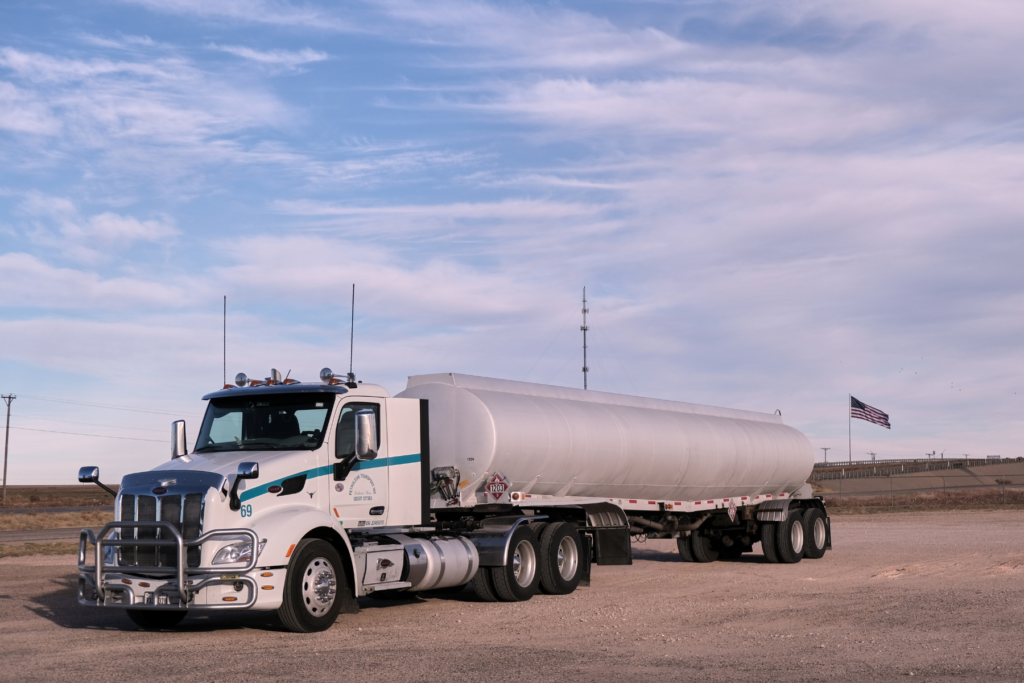Fuel prices are a critical factor in the logistics industry, influencing transportation costs, supply chain efficiency, and overall market stability. As fuel prices fluctuate, businesses in both the U.S. and Mexico must adapt to rising operational expenses, shifts in supply chain dynamics, and evolving governmental policies. Understanding how these changes affect logistics in major industrial hubs helps businesses implement strategies to mitigate risks and optimize operations.
Fuel Price Trends in the U.S. & Mexico
Historical Fuel Cost Fluctuations
Over the past decade, fuel prices in the U.S. and Mexico have experienced significant volatility due to factors such as:
- Geopolitical Tensions – Events such as OPEC decisions, trade disputes, and global conflicts have historically led to price surges.
- Supply Chain Disruptions – The COVID-19 pandemic, refinery shutdowns, and hurricanes affecting Gulf Coast production have caused fuel shortages and price hikes.
- Currency Exchange Rates – The fluctuation of the Mexican peso against the U.S. dollar has impacted fuel affordability for businesses operating cross-border supply chains.
Current Fuel Price Landscape
Fuel prices remain dynamic due to ongoing geopolitical events, inflation, and energy policies. As of 2024:
- Major U.S. Cities: Fuel prices remain high in logistics-heavy cities like Houston, Los Angeles, and Chicago, impacting transportation costs.
- Mexican Hubs: Cities such as Mexico City, Monterrey, and Guadalajara are facing fluctuating prices influenced by government fuel subsidies and global oil market trends.
- Government Regulations: The U.S. maintains federal and state fuel taxes, while Mexico’s policies include subsidies and tax adjustments to control domestic fuel costs.
How Fuel Costs Impact Logistics & Supply Chains

Transportation Costs for Trucking & Freight Companies
Fuel prices directly affect trucking and freight expenses, influencing delivery costs and profit margins. Key factors include:
- Highway Fuel Costs – Long-haul trucking routes, particularly those spanning Texas, California, and border states, experience variable fuel expenses.
- Fleet Efficiency – Companies investing in fuel-efficient trucks and optimized route planning can reduce overall fuel expenditure.
- Regional Disparities – Fuel costs differ between northern and southern Mexico, creating challenges for freight companies operating nationwide.
Cross-Border Trade & Fuel Expenses
The U.S.-Mexico trade corridor is heavily dependent on fuel pricing. Key impacts include:
- Increased Operational Costs – Rising fuel expenses increase the cost of moving goods across key border crossings such as Laredo, TX, and Nuevo Laredo, MX.
- Customs Delays & Idling – Longer border wait times contribute to unnecessary fuel consumption and added expenses for logistics firms.
- Regulatory Differences – Different fuel taxation policies in the U.S. and Mexico create pricing discrepancies that impact transportation budgets.
Impact on Warehousing & Distribution Centers
Warehousing and distribution networks are closely tied to transportation costs. Rising fuel prices lead to:
- Higher Shipping Costs – Distributors in key logistics zones, such as Texas and California, face increased costs for inbound and outbound shipments.
- Shift Toward Regional Warehousing – Businesses may opt for multiple smaller distribution centers closer to key markets to reduce transportation expenses.
- Inventory Management Adjustments – Companies may stockpile essential goods to mitigate future price increases.
Sector-Specific Challenges: Manufacturing, Retail, and Agriculture
Fuel price volatility affects industries differently:
- Manufacturing – Automotive supply chains in Monterrey and Texas rely on stable fuel prices for raw material imports and exports.
- Retail – Large-scale retailers must adjust pricing strategies to offset increased shipping costs.
- Agriculture – Farmers in Mexico and the U.S. face higher operational costs due to fuel-dependent machinery and transportation logistics.
Mitigating Fuel Cost Risks in Logistics

Fuel Hedging & Risk Management Strategies
To combat rising fuel costs, logistics companies can implement:
- Fuel Hedging – Locking in fuel prices through long-term contracts to stabilize costs.
- Risk Management Programs – Utilizing financial instruments and strategic partnerships to mitigate sudden price spikes.
- Diversified Fuel Sourcing – Exploring multiple fuel suppliers to take advantage of regional price differences.
Sustainable & Fuel-Efficient Transportation Solutions
To reduce fuel dependence and costs, logistics firms are adopting:
- Alternative Fuels – The use of electric, hybrid, and natural gas-powered vehicles to decrease fuel expenses.
- Route Optimization Technology – Advanced software to minimize fuel consumption by identifying the most efficient delivery routes.
- Fleet Modernization – Investing in fuel-efficient trucks with improved aerodynamics and lightweight materials to enhance efficiency.
Navigating Fuel Costs in U.S.-Mexico Logistics
Fuel costs will remain a major factor influencing logistics operations across the U.S. and Mexico. Businesses must proactively implement cost-effective strategies, leverage risk management programs, and explore sustainable transportation solutions to stay competitive. By staying informed and adapting to market fluctuations, companies can enhance operational efficiency and mitigate financial risks associated with rising fuel prices.
If your business is looking for expert guidance on managing fuel costs and optimizing your logistics operations, contact us today. Visit our website today or fill out our contact form to learn how we can help you navigate fuel price volatility with strategic solutions. Businesses must adapt by implementing cost-effective strategies, leveraging risk management tools, and exploring sustainable transportation solutions. As fuel prices fluctuate, staying informed and proactive will be essential to maintaining efficiency and profitability in logistics and supply chain operations.



